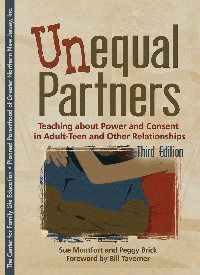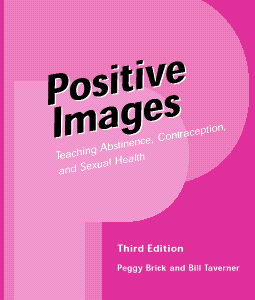by Robin Slaw
I recently ran into a CNN article about teen use of text talk. It was a pretty scary article, one that would make me afraid of what my teens were doing if I wasn’t fairly savvy about social media and texting. It’s the kind of article that my 77-year-old mother will forward to me eventually, warning me of the dangers that her grandchildren face.
Here’s the thing. I have 2.9 teens (my third is less than half a year away from turning 13, but she’s been acting like a teen for several years already – the natural result of having two bigger siblings, I guess.) We have open and honest communication going in our house. I talk to them about ideas like sex and healthy relationships and “the big bad world and what could go wrong out there” and they talk to me about their lives, the trouble that they see peers getting into, and come to me for help for themselves and their peers when needed. Together, we’ve called social worker friends to find out how to best help a teen friend who was cutting, we’ve discussed what to expect when one came home from a sleepover where the hostess got drunk and wasn’t legal to drink, and we’ve talked about when it’s reasonable to date, what to do when a date pushes too hard, and that mom is always available to come pick them up when they find themselves in a situation that doesn’t feel safe.
As a parent, I’ve been asked to say no to events to which they were invited, but they weren’t sure it would be safe. I’ve been asked to trust them, and I do. I have spent long nights on the living room sofa, waiting for errant teens to get home, and we’ve had long discussions about what it means to be trusted and how to gain trust, and how to regain trust after it’s been broken. All in all, my teens are reasonably emotionally healthy, and they choose to have friendships with other teens who also behave in what I would call healthy ways. That would include relationships, friendly and romantic, built on solid communication, choices that don’t involve much risky behavior, and rejection of behaviors in friends and partners that feel abusive or not trustworthy.
Mostly, I wonder how I have managed to raise such healthy and trustworthy teens so far. They aren’t angels by any stretch of the imagination … there are days when I want to tear out my hair from the constant bickering and merciless teasing that goes on in my house. Other days, I am so relieved to escape to work and avoid the chaos of daily life revolving around the self-absorbed intensity of teenagers. But overall, I am lucky to have such solid teens. Sometimes, I wonder if I am just enjoying some good karma. Mostly, I think maybe it’s the honesty of our communication. I’m not afraid to talk to them about everything, and they aren’t afraid to talk to me about anything. Even when accompanied by rolling eyes and protests of “Eeeewwwww” and “MoOOMMmm!!”, we listen to each other, we try to understand each others’ points of view, and we work really hard on trust and honesty. My payback is teens who mostly stay out of trouble.
My working summer has been spent editing new lessons on teaching about safer sex. Communicating with teens and young adults has been uppermost in my mind through all the editing. Now that fall and school have arrived, I’m thinking hard about how to open those lines of communication, which brings me back to the scary article about teen text talk. The CNN article advocates reviewing your teens’ online presence and cell phone texts. I find myself wondering how to walk the narrow fence between trusting and protecting children, both as a parent and as an educator. Will it be enough to talk to them honestly and comprehensively, and then trust them to do the right thing? Will I foolishly risk the health of those children that I teach or parent, by not giving in to the rampant paranoia in today’s environment?
 What I’m planning to do this year is to try to meet teens where they’re at. I’d like to use technology to teach, and will be talking about websites like www.athinline.org/ and www.thatsnotcool.com/ and www.thinkb4youspeak.com/ with teens at school and at home. I will work with them to help them understand what healthy relationships are, both romantically and friendly, using resources from manuals like The CFLE’s Unequal Partners. I will talk to them about contraceptive coercion using articles like this LA Times report. And I will hope that open and honest and thorough, comprehensive discussions about risks will empower the teens in my life to make healthy decisions that will keep them safe, without the need to live in a restrictive policed environment sans trust.
What I’m planning to do this year is to try to meet teens where they’re at. I’d like to use technology to teach, and will be talking about websites like www.athinline.org/ and www.thatsnotcool.com/ and www.thinkb4youspeak.com/ with teens at school and at home. I will work with them to help them understand what healthy relationships are, both romantically and friendly, using resources from manuals like The CFLE’s Unequal Partners. I will talk to them about contraceptive coercion using articles like this LA Times report. And I will hope that open and honest and thorough, comprehensive discussions about risks will empower the teens in my life to make healthy decisions that will keep them safe, without the need to live in a restrictive policed environment sans trust.
How are you planning to teach the teens and young adults in your life, as a parent and as an educator?
[Editor: In the years since this post went up, new cyberbullying resources have emerged for both parents and kids, including “Understanding and Preventing Cyberbullying,” stopbullying.gov, and this informational page from Pacer’s National Bullying Prevention Center.]






